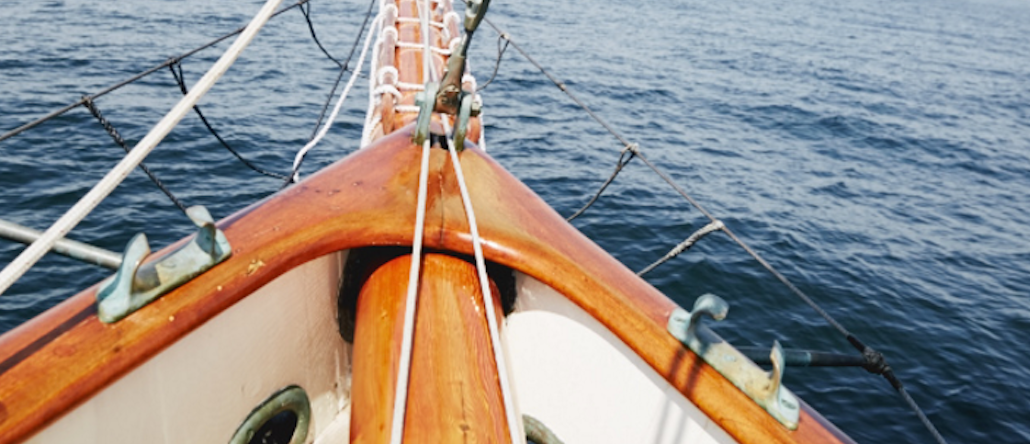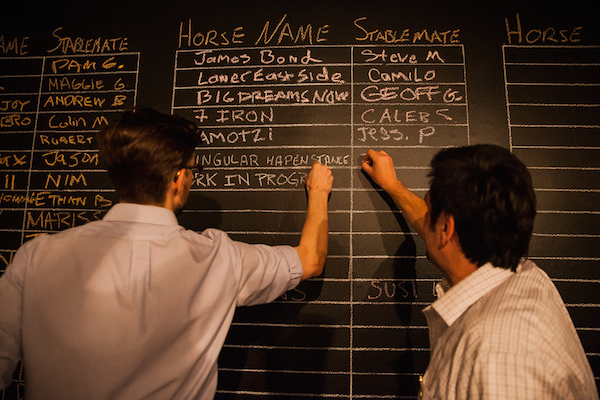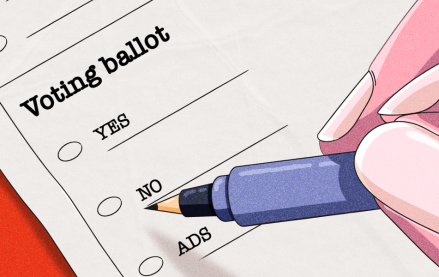How niche site True Ink is getting readers to pay for offline experiences

Last May, 77 adventure-seeking New Yorkers paid upwards of $90 to crowd onto a fishing boat and sail around Sheepshead Bay. Another crowd paid $40 a head at a Tribeca restaurant in November to sample pig hearts prepared five different ways.
While new media upstarts will grab viewers (and headlines) by the hundreds of thousands by exploding fruit on video, the niche publishing world offers a corollary to that model. The events were thrown by True Ink, a media company started a year ago by Geoffrey Gray, an author (“Skyjack: The Hunt for D.B. Cooper”) and journalist (New York, Sports Illustrated, Departures) with a focus on unsolved crimes.
Inspired by True: The Man’s Magazine, a pulp title from the 1930s, Gray wanted to create a place where stories about exotic topics like running with the bulls in Pamplona and making wineskins could thrive, unencumbered by the constraints of advertising-driven publishing and its need for scale, clicks and shares. He also saw that young people were tired of the virtual world and wanted unusual, real-life experiences.
“Storytelling has become so click-driven; it has to chase a digital ad model,” Gray said. “I thought, why not try to bring True back and take that old pulpy model and bring it to life with an experiential component?”
True Ink shares a kindred spirit with another startup, Atlas Obscura, which has promoted some of True Ink’s events; the two are talking about producing some events together. “The whole idea is that in age of platforms, small media companies like us and True Ink are trying to develop an intense relationship with people who feel like they are part of something,” said David Plotz, CEO of Atlas Obscura and the former editor of Slate.
Rather than rely on advertising, True Ink raises money from readers in the form of memberships (they’re called “Lucky Pieces”) and events like a sailing trip to Cuba (pictured) and the aforementioned pig dinner. It’s doing “experiential” branded content in the form of event sponsorships. For parties, it lined up Joseph Abboud, Koval whiskey and Crisloid, a maker of classic games like backgammon, for example. Eventually, Gray sees making money from branded products, e-commerce and other media like documentary-style shows and films inspired by True Ink’s content.
For its biggest project to date, True Ink is throwing a crowdfunding campaign through Indiegogo to raise money to buy a racehorse that will be stabled on Long Island. People who donate at least $100 will get access to parties, trips and other events. Two weeks in, the campaign has raised nearly $23,000. Gray compared the campaign to adventure plays where the audience participates. “Instead of reading about a race horse and trainer, you’re part of it, so you have a connection to the story,” he said.

Gray has rounded up a handful of full- and part-timers including ex-Reuters reporter Colin McDonald and writer Jason Schwartzman to operate True Ink. Started in Gray’s home on the Lower East Side, it now operates out of borrowed space in a law firm in Midtown and in a former factory in Greenpoint, Brooklyn. It’s gotten some angel funding and is about to seek seed funding.
Adria Jover, one of the angel investors and the founder of Glassful, a wine subscription service, said he was attracted to the company because of its “true, unique” style in contrast to the media companies that cater to a more passive readership. “I truly believe all the media giants out there, they will be very attracted to an initiative like True to include within their portfolio,” he said.
But for a new company just getting off the ground, making money from consumer events is hard. Plotz knows; Atlas Obscura has been at this for two years. Sponsors can help get an event to profitability, but they work on long lead times, want to work with people they know and be sure the event matches up with their goals, he said. If you forego sponsorships, you have to price the event low enough that it’ll be accessible to users who are (presumably) paying out of pocket. So keeping the company afloat will likely depend on a mix of revenue streams — beyond pig heart dinners.
More in Media

Publishers revamp their newsletter offerings to engage audiences amid threat of AI and declining referral traffic
Publishers like Axios, Eater, the Guardian, theSkimm and Snopes are either growing or revamping their newsletter offerings to engage audiences as a wave of generative AI advancements increases the need for original content and referral traffic declines push publishers to find alternative ways to reach readers.

The Guardian US is starting its pursuit of political ad dollars
The Guardian US is entering the race for political ad dollars.

How much is Possible’s future in Michael Kassan’s hands?
Some people in the know at Possible said they see the conference taking a bite out of Cannes’ attendance, most acutely by U.S.-based marketers who could save money by staying on this side of the Atlantic.





